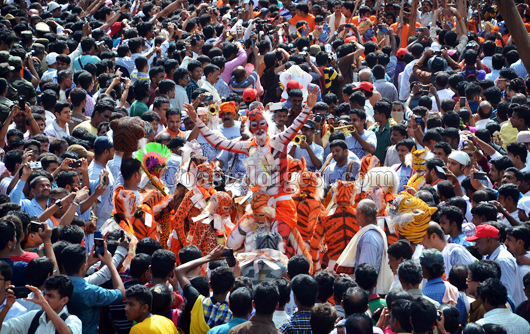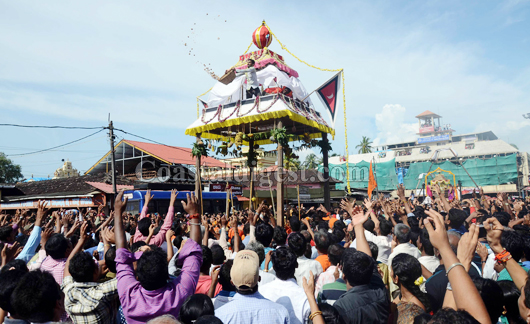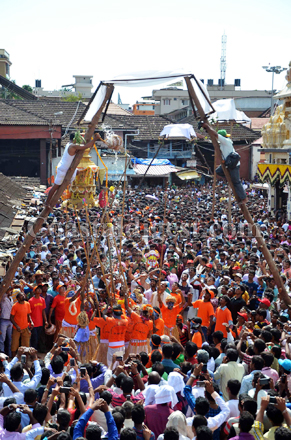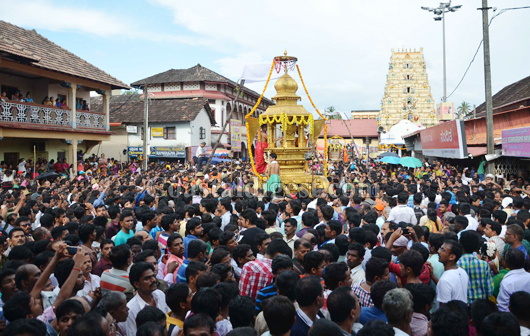Udupi, Sep 6: Thousands of people took part in the procession of the Sri Krishna Leelotsava, popularly called the Vittal Pindi festival, on Car Street here on Sunday.

The procession started from the entrance of the Sri Krishna Mutt/Temple at around 3 p.m. Vidyavallabha Tirtha Swami of Paryaya Kaniyur Mutt installed a clay idol, ‘utsava murthy’, of Lord Krishna on the top of the golden chariot.
The idols of Lord Ananteshwara and Lord Chandramouleshwara were placed in the ‘Navaratna Ratha’ ahead of the golden chariot.
These chariots were pulled around Car Street with traditional drum beaters and ‘Huli Vesha’ dancers accompanying them. Vidyavallabha Tirtha, Vidyasagara Tirtha of Krishnapur Mutt and Lakshmivara Tirtha Swami of Shiroor Mutt walked between the two chariots.
There were a large number of people behind and in front of the chariots.
But the main highlight of the festival was mosaru kudike or breaking of earthen pots.
As many as 15 wooden gopuras were constructed around Car Street. As soon as the procession reached a gopura, a person would climb atop it and hang pots containing milk and milk products.
A group of persons dressed in folk costumes would stand below the gopura with long sticks and jostle with one another to break the earthen pots (with the sticks). This process was repeated at all the wooden gopuras.
People applauded them whenever they broke the earthen pots. Mosaru kudike here is different from those arranged at other places, where human pyramids are formed to break earthen pots hung above.
Then, Vidyavallabha Tirtha distributed ladoos and chakkulis at a stage put up near the Ananteshwara Temple Cross Road. Another feature of the festival was the enthusiastic participation of the Huli Vesha groups.
Their vigorous and spirited dancing enlivened the atmosphere.
What caught everyone’s eye was a Huli Vesha dancer dancing on two wooden bars held above the ground by members of his group. Some Yakshagana dancers also displayed their dancing skills during the procession.
After going around the Car Street, the procession culminated at the entrance of the Sri Krishna Mutt/Temple. The clay idol of Lord Krishna was removed from the golden chariot and taken in a golden palanquin and immersed in the Madhwa Sarovara, marking the culmination of the festival.









Comments
Thank you coastaldigest for sharing. Indeed it was useful information about Udupi Temple Keep up the work..! Appreciate the time was taken to share the valuable info with the visitors/devotees like us..!
Add new comment